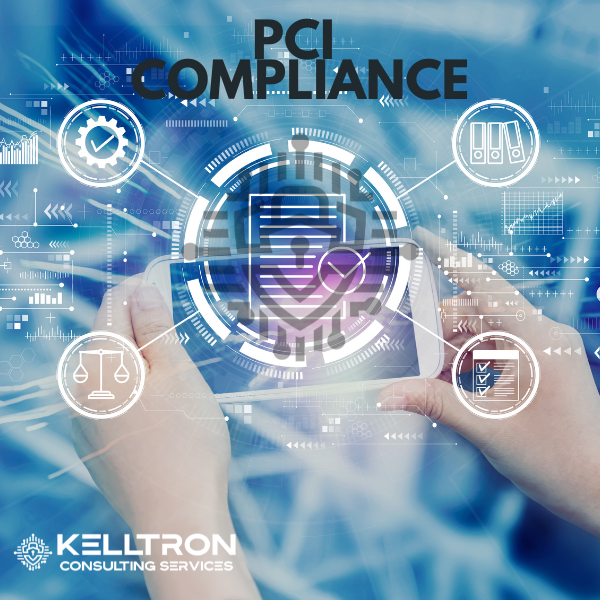What is PCI?
PCI, short for Payment Card Industry, represents a globally recognized set of guidelines.
These standards are mandatory for most businesses dealing with credit card data and sensitive customer information.
PCI compliance primarily involves maintaining secure networks, ongoing monitoring, and implementing stringent security controls, among other rules. While seemingly straightforward, these rules can be challenging to maintain alongside other security measures.
Non-compliance can result in significant penalties and fines. In essence, PCI compliance is crucial for any organization handling credit card information.
Where Can We Assist with PCI Compliance?
Network Monitoring:
Your organization must identify and monitor all systems handling credit card data. Kelltron integrates with and monitors these network systems to ensure comprehensive compliance.
Vulnerability Assessment:
Regular analysis of system vulnerabilities is required. Kelltron provides real-time vulnerability assessments for swift resolution.
Event Correlation:
Capturing user activities and identifying patterns in system events is crucial. Kelltron's systems prioritize threats and minimize false positives for effective threat management.
Intrusion Detection:
Monitoring system traffic and swiftly identifying intrusions is vital. Kelltron promptly identifies and addresses intrusions in real-time.
Log Management:
Efficiently managing event logs as mandated by PCI ensures thorough event investigation and reporting using SIEMStorm, LOG Storm, and CYBER Shark.
Reporting:
Reporting breaches promptly is essential for compliance. LOG Storm includes PCI reporting packs for swift response and damage mitigation after an event.
Benefits of PCI Compliance
Compliance with PCI means that your systems are "secure," fostering trust with customers regarding their sensitive payment card information.
Customer trust leads to repeat business and referrals. Implementing PCI controls safeguards data, lowers compromise risks, and upholds your corporate reputation.
Adherence enhances standing with acquirers and payment brands, crucial partners for business. Moreover, compliance indirectly prepares you for other regulations like HIPAA and SOX.
PCI's principles form the foundation of a broader corporate security strategy. Assets and practices developed for compliance can be applied as general information security best practices across the organization.
How Kelltron can help you, to become a PCI Compliant?
Kelltron can support your PCI compliance efforts by:
Performing risk assessments
Guiding your understanding of obligations
Implementing strong measures to safeguard personal and financial data
Conducting penetration testing
Scanning for vulnerabilities
Addressing identified vulnerabilities
Performing endpoint monitoring
Overseeing cyber incident response management
A Holistic Approach - when it comes to PCI compliance.
1. Organizations with successful compliance programs reject this mindset. Instead, they embrace an active approach to compliance.
2. Policies are central to a well-crafted information security program.
3. They assign information security responsibilities and empower staff to implement controls effectively.
4. For those aiming for PCI compliance, starting with a set of information security policies can outline the organization’s approach to information security.
5. Policy development should encompass a review of four key security elements which are:
a) Data security: Testing, identity and access management, antivirus software, and password security protocols
b) Network security: Firewall and network device management, remote-access provisions, and encryption standards
c) Physical security: Access procedures, inventory methods, visitor controls, video surveillance, and data destruction protocols
d) Personnel security: User education, background checks, and workflows to safeguard cardholder information. IT teams can utilize this policy framework to establish suitable information security controls.



